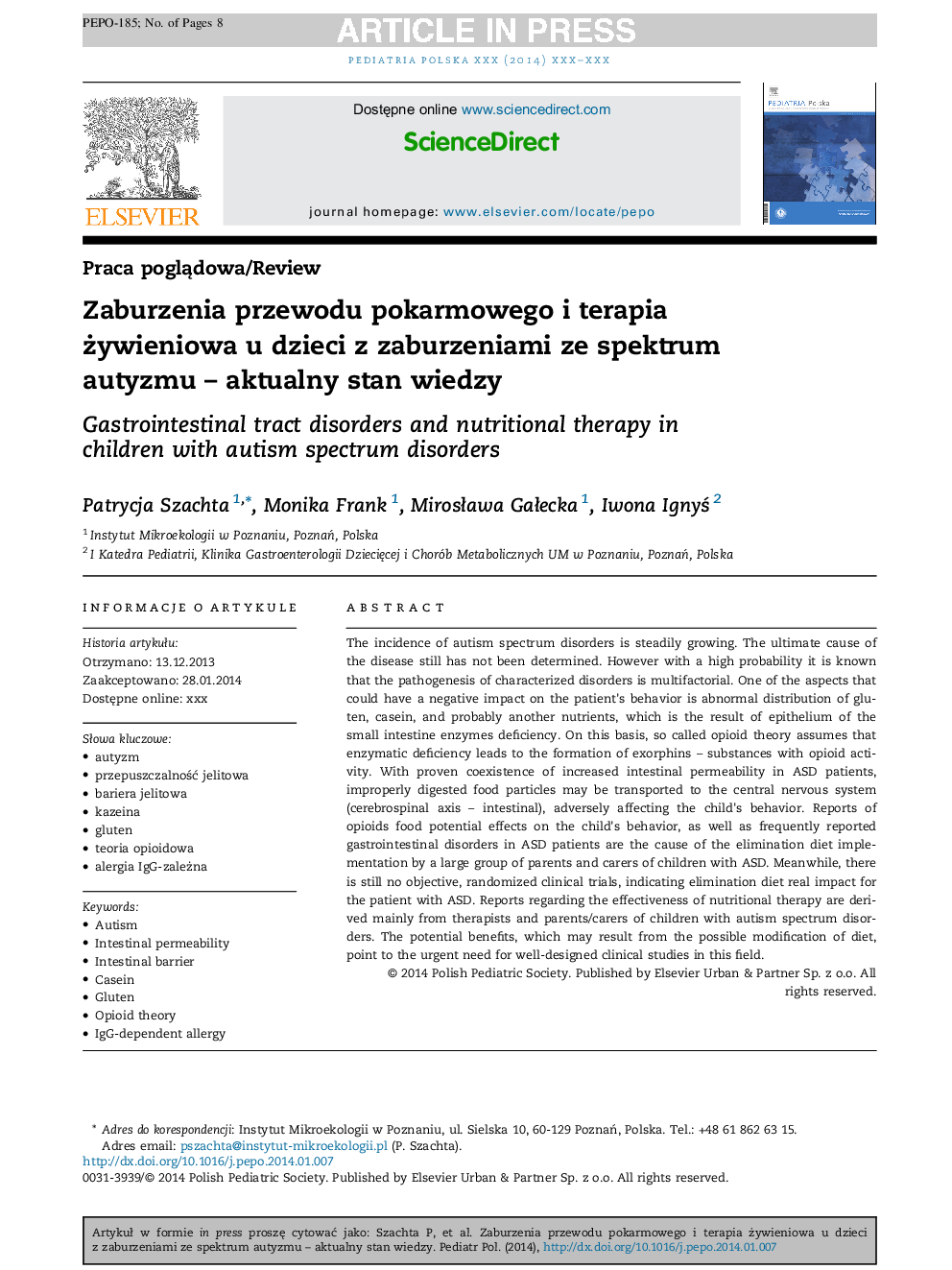| Article ID | Journal | Published Year | Pages | File Type |
|---|---|---|---|---|
| 10162940 | Pediatria Polska | 2014 | 8 Pages |
Abstract
The incidence of autism spectrum disorders is steadily growing. The ultimate cause of the disease still has not been determined. However with a high probability it is known that the pathogenesis of characterized disorders is multifactorial. One of the aspects that could have a negative impact on the patient's behavior is abnormal distribution of gluten, casein, and probably another nutrients, which is the result of epithelium of the small intestine enzymes deficiency. On this basis, so called opioid theory assumes that enzymatic deficiency leads to the formation of exorphins - substances with opioid activity. With proven coexistence of increased intestinal permeability in ASD patients, improperly digested food particles may be transported to the central nervous system (cerebrospinal axis - intestinal), adversely affecting the child's behavior. Reports of opioids food potential effects on the child's behavior, as well as frequently reported gastrointestinal disorders in ASD patients are the cause of the elimination diet implementation by a large group of parents and carers of children with ASD. Meanwhile, there is still no objective, randomized clinical trials, indicating elimination diet real impact for the patient with ASD. Reports regarding the effectiveness of nutritional therapy are derived mainly from therapists and parents/carers of children with autism spectrum disorders. The potential benefits, which may result from the possible modification of diet, point to the urgent need for well-designed clinical studies in this field.
Related Topics
Health Sciences
Medicine and Dentistry
Dermatology
Authors
Patrycja Szachta, Monika Frank, MirosÅawa GaÅecka, Iwona IgnyÅ,
